The idea of the metaverse – a network of digital spaces where social interactions can occur, facilitated by virtual and augmented reality – has gained traction as technology has improved. However, the social aspect of the metaverse is not the only aspect to focus on, and there are several exciting metaverse hospitality opportunities to be aware of too. This post lets you learn more about the metaverse and these various opportunities.
Table of Contents:
- What is the Metaverse?
- How Can Businesses Use the Metaverse?
- What is the Difference Between the Metaverse and VR?
- What is the Hospitality Industry?
- How Can the Hospitality Industry Be Included in the Metaverse?
- Be a Part of the Hospitality Metaverse By Using These Devices
- 13 Hospitality Brands Using the Metaverse and NFTs for Marketing and Investment
- Blockchain Technology and the Hospitality Metaverse
- The Hospitality Metaverse and Other Hospitality Technology Trends
- Virtual Reality and the Hospitality Metaverse
- Artificial Intelligence and the Hospitality Metaverse
What is the Metaverse?
First, it is important to define precisely what the term ‘metaverse’ means. This refers to a network of digital spaces where social interactions occur. In many cases, users explore the metaverse with the use of an avatar, and the metaverse then serves as an interactive, virtual world. Alternatively, the metaverse can also be seen as the connection between the virtual and real worlds, where, in the future, technology can seamlessly enhance users’ lives.
Virtual reality and augmented reality are the technologies most commonly associated with the metaverse, although video games, blockchain technology, and other solutions can also play a role. Metaverse hospitality refers to various hospitality offerings made available through the metaverse, including virtual entertainment, VR experiences, and more.
Would you like to learn more about the Metaverse? The article “Metaverse Guide; Understanding The Basics Will Open Up a New World” provides more in-depth information about this new “universe”. The website provides also a list of Metaverse blog’s specializing in this subject.
How Can Businesses Use the Metaverse?
Aside from the pure social functions of the metaverse, it is crucial to understand that the metaverse has a lot of potential for businesses, helping them bridge the geographical space between them and their customers while creating memorable experiences, removing friction, and providing opportunities for interactions.
Within the field of metaverse hospitality, we have already started to see the rise of virtual concerts and other performances. Some companies have provided these virtual concerts as virtual reality experiences, while others have experimented with virtual concerts in video games like Fortnite.
Increasingly, the metaverse is being viewed as a viable concept for those in the hotel industry to explore, and some properties have started providing virtual spaces for digital meetings or celebrations. Meanwhile, with e-commerce, the metaverse can provide opportunities for customers to experience products or services before buying.
What is the Difference Between the Metaverse and VR?
Virtual reality technology has become more widespread recently, and VR hardware and software are among the solutions most widely associated with the metaverse concept. However, this has also led to some confusion, with many people finding it difficult to understand precisely how the metaverse and VR differ.
Essentially, the defining aspect of the metaverse is creating a virtual or digital space, where interactions can occur. This means that while virtual reality is a useful technology here, it is unnecessary. The metaverse could, for example, take the form of an interactive game, where users control an avatar and interact that way.
What is the Hospitality Industry?
The hospitality industry can be described as a section of the service industry focused on leisure, experiences, and the reception and/or provision of entertainment for guests or customers. It is a broad field, which includes everything from hotels and guest accommodation to restaurants, entertainment venues, cruises, and metaverse hospitality.
At times, the hospitality industry is sometimes confused with the hotel industry. Still, the two are distinct concepts, and the hotel industry can be understood as just one part of the wider hospitality sector. To learn more about its definition, check out the article “Hospitality Industry: The No. 1 Hospitality Information Guide!”
How Can the Hospitality Industry Be Included in the Metaverse?
Traditionally, the hospitality industry has been associated with the physical reception of guests, but this has changed with the emergence of new technology and the birth of the hospitality metaverse. In the sections below, you will find examples of how the hospitality industry can be included within the metaverse.
Hotels in the Metaverse
One of the biggest ways the hospitality industry is already starting to present itself within the metaverse is through the development of metaverse hotels, and there are several ways to think about this concept. For one, hotels can provide virtual reality tours or options to explore their hotel with an avatar during the booking process.
This allows guests to get a clear sense of what to expect before they commit to booking a hotel room. However, it is not the only way hotels are exploring the metaverse. Some, for example, give their guests access to virtual spaces, allowing them to host virtual birthday celebrations or hold virtual business meetings.
Restaurants in the Metaverse
The hotel industry is far from the only hospitality sector exploring the metaverse. Through virtual reality technology, cutting-edge restaurants can provide the tools for customers to fully explore their menu before booking, including options to see how a meal is prepared, or to check out the facilities.
Currently, some of the biggest hospitality marketing trends are focused on bringing outdoor experiences into the home environment. Through the metaverse, takeaway restaurants could allow users to place their orders in a virtual restaurant, interacting with restaurant employees represented by their avatars.
Entertainment in the Metaverse
Entertainment companies are capitalizing on the concept of metaverse hospitality by recreating realistic experiences that customers can enjoy from the comfort of their own home, primarily through virtual reality technology and VR headsets. This can be an extremely cost-effective solution.
For instance, rollercoasters are expensive to develop in real life, and there are strict safety concerns. With a virtual reality experience, however, realistic rollercoasters can be enjoyed in a virtual world without the costs or risks attached. Of course, VR experiences can also defy the laws of the natural world, and some of the other options that could be created include virtual experiences like walking on the moon or Mars, or visiting virtual tourist destinations.
Nightclubs and Casinos in the Metaverse
Nightclubs are another part of the industry where metaverse hospitality options are starting to emerge. Virtual recreations of nightclubs can allow people to experience many benefits of visiting a nightclub, including music, dancing, and interacting socially, without leaving their homes. Virtual nightclub providers can then monetize the experience, offering options for users to improve their avatars and access new music.
Casinos can also operate in a similar space, allowing customers to play games like poker, roulette, and blackjack in a virtual casino, where they can interact with people and explore a realistic recreation of the real experience.
Concerts in the Metaverse
An area where metaverse hospitality has already started to show its potential is with concerts that take place in the metaverse. There are different approaches here, from concerts within video game worlds, to virtual reality concerts, where users are placed in a realistic, virtual recreation of a music venue.
The potential here is almost limitless. Not only does it mean an almost unlimited number of people can attend the same virtual concert simultaneously, it also means the ordinary barriers can be broken down. For example, customers could attend a virtual concert from The Beatles, Elvis, or other artists who are no longer touring in the real world.
Video: Concerts In The Metaverse Are Making Artists Millions
Be a Part of the Hospitality Metaverse By Using These Devices
Metaverse hospitality opportunities allow businesses to capitalize on a variety of devices, as explained below:
Smartphones and Computers
The most widely available devices that can be used to access Metaverse hospitality services are smartphones and computers. Both devices are configurable to some extent and feature screens and controls that allow metaverse environments to be navigated through. Most metaverse software is designed to run on a PC.
While smartphones and computers are not the most immersive ways to experience the metaverse, they can also be connected to peripheral devices, including some of the devices explained below. Modern smartphones also include built-in augmented reality functionality, including cameras and geographical location tracking.
VR Headsets
Virtual reality headsets are perhaps the most immersive way to experience the metaverse combined with hospitality industry services. These head-mounted devices include a built-in display system and head motion tracking. VR headsets can be connected to a computer, phone, or games console; some can be standalone devices.
Regarding metaverse hospitality, VR headsets can digitally immerse users in a created environment. Generally, users can move around this digital environment, interact with objects within the virtual reality, and experience realistic recreations of real-world places or even wholly fictional settings.
AR Data Glasses
Augmented reality data glasses are somewhat similar to virtual reality headsets, although there is a fundamental difference: AR glasses do not completely replace the real-world environment. Instead, users can see their natural surroundings, and then the AR data glasses overlay some additional digital information.
AR data glasses can overlay valuable information over real-world environments for metaverse hospitality. As an example of this, imagine wearing AR glasses in a restaurant, looking at a menu board, and seeing additional information, like calorie content. Alternatively, imagine looking outside a hotel and seeing the star rating or online reviews. For these reasons, AR glasses typically track your geographical location.
MR Headsets
Mixed reality headsets are also fairly similar to augmented reality headsets in that they provide the wearer with a view of their real-world environment and combine this with digital elements. The primary difference is that the physical and digital elements can interact with mixed reality.
So, for example, augmented reality could display a digital character in a real-world environment. Yet, with mixed reality, the user could interact with this digital character. Mixed reality is still an emerging technology, but it offers a lot of promise within the broader concept of metaverse hospitality.
13 Hospitality Brands Using the Metaverse and NFTs for Marketing and Investment
Aside from the hospitality metaverse opportunities outlined, some businesses also capitalize on non-fungible tokens, or NFTs, which utilize blockchain technology and serve as non-interchangeable data units. These digital data units can be sold, traded, or used as digital assets.
Marriott Hotels
Marriott International was one of the first hotel industry brands to explore the concept of NFTs in any real depth. The company created its own digital art NFTs, which can be traded on the blockchain, often viewed as one of the cornerstones of what metaverse hospitality is envisioned in the future.
Budweiser
Budweiser is another brand that has quickly understood the potential for hospitality marketing offered by NFTs. The company created and sold just under 2,000 unique digital beer cans, and buyers have already started to sell the cans on the second-hand NFT market for significantly more than the initial purchase price.
Stella Artois
Stella Artois became one of the first hospitality-related brands to explore metaverse hospitality sponsorship. The brand has partnered with the Zed Run platform, which allows users to buy virtual race horses using NFTs. As part of the agreement, Stella Artois sponsored a race track and auctioned off virtual horses.
Domino’s
Domino’s Pizza has explored the metaverse hospitality concept through the Decentraland platform. Decentraland is a browser-based 3D virtual world where users can control an avatar and explore the in-game setting. Digital ‘properties’ can also be purchased and owned by other users, and Domino’s purchased one of these properties.
Using this platform, US-based users can visit Domino’s stands in the virtual world and place orders, which can be paid for using the platform’s primary currency, MANA. This purchase in the digital world will result in a real-world order being placed, so users can buy pizza in the digital environment and have it delivered to them in person.
Video: Ordering Dominos In The METAVERSE
CitizenM
CitizenM is a Netherlands-based hotel chain, specializing in boutique hotels. The brand became the first hotel chain to invest in digital real estate within The Sandbox, which is a decentralized NFT gaming metaverse. The brand’s digital hotel in The Sandbox can be visited by users, who can then interact with it in various ways.
This investment in digital real estate and metaverse hospitality is partially funded through the sale of NFTs created by digital artists. Each digital artwork is connected to real-world rewards, which can be used at actual CitizenM properties, with examples including discounts on hotel rooms, or free drinks at the hotel bar.
Oveit
Oveit is an online ticketing company, that allows businesses to sell traditional and NFT tickets. NFT ticketing, in particular, is relevant for using the metaverse combined with hospitality industry offerings and allows brands to sell tickets as pre-programmed digital ownership contracts containing additional information.
So how does this work in reality? A metaverse hospitality brand can sell tickets online that provide access to a venue or premises and additional services. This could be anything from membership to a customer loyalty program, to additional food or drink, merchandise, or even coupons or credit for use within the venue.
Video: NFT tickets – Create, mint, and sell
Millennium Hotels
Millennium Hotels became the first hotel group to operate a hotel within the metaverse when it launched an M Social property within the aforementioned Decentraland platform. The virtual property is modeled after existing M Social hotels in the real world, allowing users to explore the property and interact with certain features.
Millennium Hotels set out a long-term plan to monetize its exploration of metaverse hospitality. Ideas include selling space within the hotel lobby to other brands, who can use it to assist with product launches or other marketing efforts. Additionally, Decentraland users can rent or buy space within the hotel for their own purposes.
Video: Millennium Hotels and Resorts
Lucky Block Casino
Lucky Block Casino is an example of metaverse hospitality in action, combining the world of online gaming and gambling with cryptocurrency and trading NFTs. Essentially, the platform is paving the way for a fully realized metaverse casino experience.
Lucky Block Casino provides users with almost 3,000 games, including classics like blackjack, slots, and roulette. Sportsbook betting is also supported, complete with odds from leading bookmakers. Many cryptocurrencies, including Bitcoin, Dogecoin, Litecoin, and Ethereum, can be used for betting.
RendezVerse
RendezVerse is a metaverse hospitality platform focused on digitally replicating the experience of a real hotel or conference venue. The platform allows hospitality brands to connect existing 360-degree tours of properties to the RendezVerse service to create a private metaverse experience.
The benefits of this are numerous. For instance, it allows hotels and conference venues to use metaverse hospitality technology to host virtual site inspections. This can reduce demand on staff and lower costs for those needing to inspect a property. Furthermore, the platform allows virtual conferences and events to be hosted.
Video: Hotels in the metaverse. New Idea or old? Good idea or bad?
Wendy’s
Wendy’s saw the potential of metaverse hospitality through the video game Fortnite. When a new game mode launched, entitled ‘Food Fight’, the brand decided not to go down the avenue of paying for sponsored content or advertising but instead to make their own Twitch stream, entertaining a quarter of a million live viewers.
The brand took this a step further. One of the fictional food chains in the game, ‘Durr Burgers’, uses freezers to store the beef for its burgers. Wendy’s used their Twitch stream to show the player character destroying these freezers, in a direct nod to the fact that Wendy’s insists on using “fresh, not frozen” beef.
Hilton
In 2022, Hilton partnered with the NFT digital art brand Niio Art, to brighten up the guest rooms and shared public spaces in several Hilton hotels worldwide, while also exploring the potential of metaverse hospitality. This was achieved by utilizing high-quality digital screens to display digital artwork from various artists.
The partnership between Hilton and Niio Art also allowed guests to take some of the art pieces with them via a subscription to the Niio Art streaming service and through the gifting of NFTs.
Chipotle
Chipotle has experimented with several metaverse hospitality offerings, but perhaps their most noteworthy foray into this virtual sphere so far saw the brand use the popular Roblox video game. The business provided a virtual burrito rolling experience called the Chipotle Burrito Builder.
The event challenges players to virtually transport to Chipotle Mexican Grill in Denver, Colorado, the brand’s first restaurant. Players roll their own burritos and can earn several in-game rewards and coupons that can be used in real Chipotle restaurants in exchange for free food items.
Pinktada
Finally, another great example of the metaverse combined with hospitality industry brands can be seen with Pinktada; a tech startup brand, which serves as a marketplace for hotel rooms and other lodgings.
What makes this service unique is the fact that customers can purchase Room Night Tokens, or RNTs. These tokens can be sold back in exchange for PinkCash, or swapped for an alternative booking through the service, and this exchange process can take place any time from when the booking is made up until 48 hours before check-in.
Blockchain Technology and the Hospitality Metaverse
The concept many people have of the hospitality metaverse is inextricably linked to blockchain technology, but it is important to understand that blockchain can play an important role beyond this too. For instance, blockchain tech can be used for ID verification, to process secure payments, or to track loyalty programs.
You can read about this technology in greater depth and learn how it is used within the hotel and hospitality industries by reading “Blockchain Technology and Its Uses in the Hospitality Industry”.
The Hospitality Metaverse and Other Hospitality Technology Trends
The hospitality metaverse uses some core technology – already widely used by hospitality companies – such as virtual and augmented reality. Nevertheless, those in the hospitality sector must remain aware of the other major technology trends.
This could include voice control, mobile and other contactless payments, and robotics. You can read the article “The Latest Technology Trends in the Hospitality Industry” to learn more.
Virtual Reality and the Hospitality Metaverse
As an idea, the hospitality metaverse relies on technology like virtual reality because it can alter people’s perceptions of their surroundings. In the hospitality industry, VR can provide users with virtual travel experiences, booking processes, virtual hotel tours, and more.
To explore this topic further, learn about specific uses of VR within hospitality, and expand your understanding of how this may play into the metaverse, read “How Virtual Reality (VR) can Enrich the Hospitality Industry”.
Artificial Intelligence and the Hospitality Metaverse
Artificial intelligence is another significant technology category that can play a role in the hospitality metaverse. This can improve everything from in-person and online customer service to data analysis and various virtual and augmented reality offerings.
The broader topic of artificial intelligence and its various uses within the hospitality sector is examined in our article, “How to Use Artificial Intelligence in the Hospitality Industry”.
The metaverse is becoming a reality as the associated technology improves, leading to the concept of the hospitality metaverse emerging. Here, hotels, restaurants, entertainment venues, and other businesses aim to capitalize on the benefits of the metaverse to deliver an interactive, virtual experience for customers.
More Tips to Grow Your Business
Revfine.com is the leading knowledge platform for the hospitality and travel industry. Professionals use our insights, strategies, and actionable tips to get inspired, optimize revenue, innovate processes, and improve customer experience.Explore expert advice on management, marketing, revenue management, operations, software, and technology in our dedicated Hotel, Hospitality, and Travel & Tourism categories.
This article is written by:
Hi, I am Martijn Barten, founder of Revfine.com. With 20 years of experience in the hospitality industry, I specialize in optimizing revenue by combining revenue management with marketing strategies. I have successfully developed, implemented, and managed revenue management and marketing strategies for individual properties and multi-property portfolios.

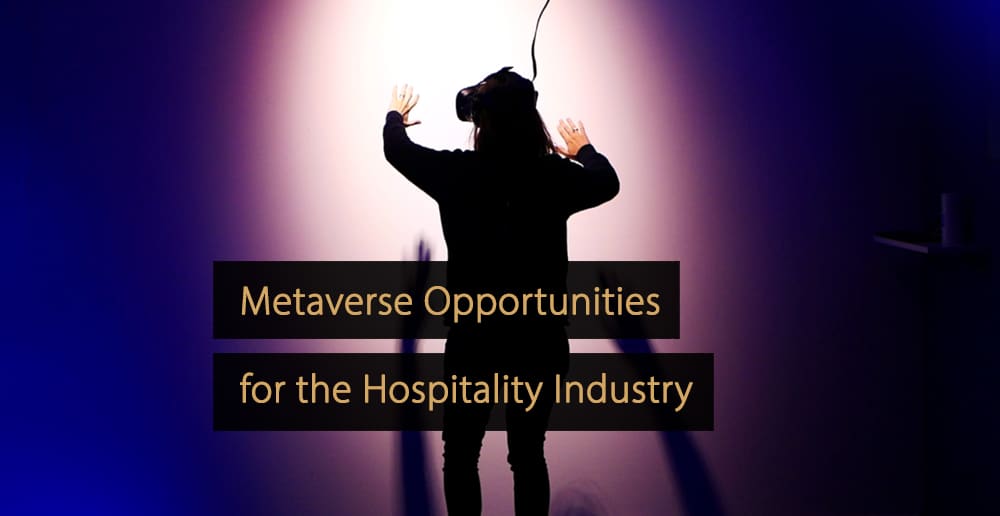

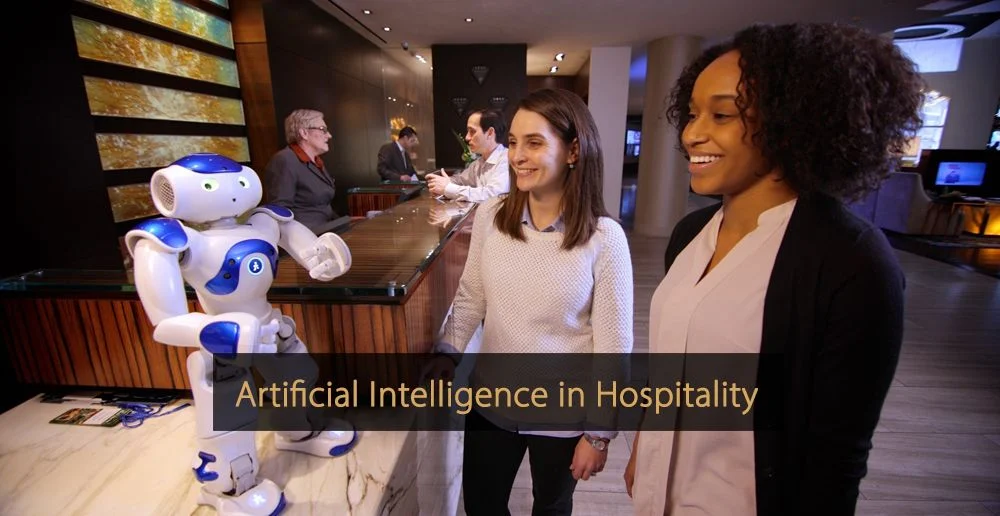
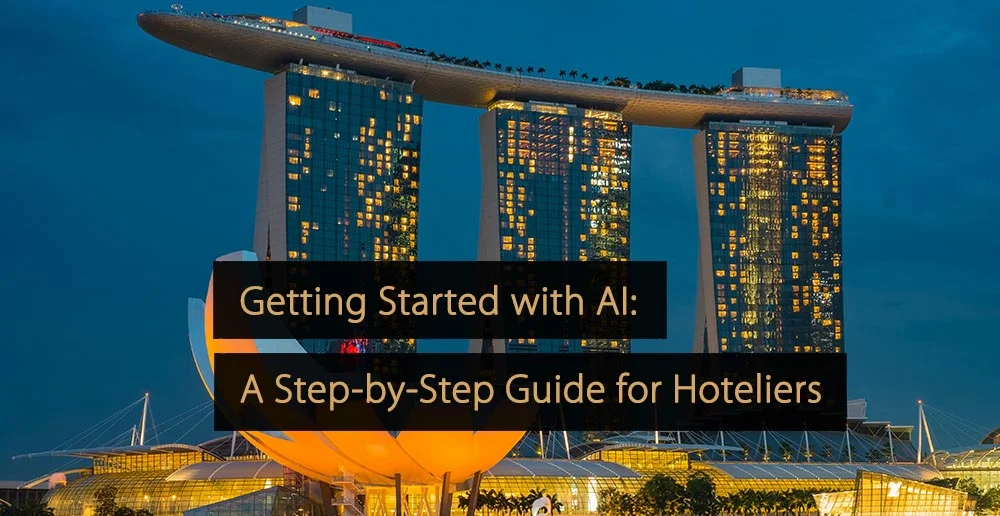

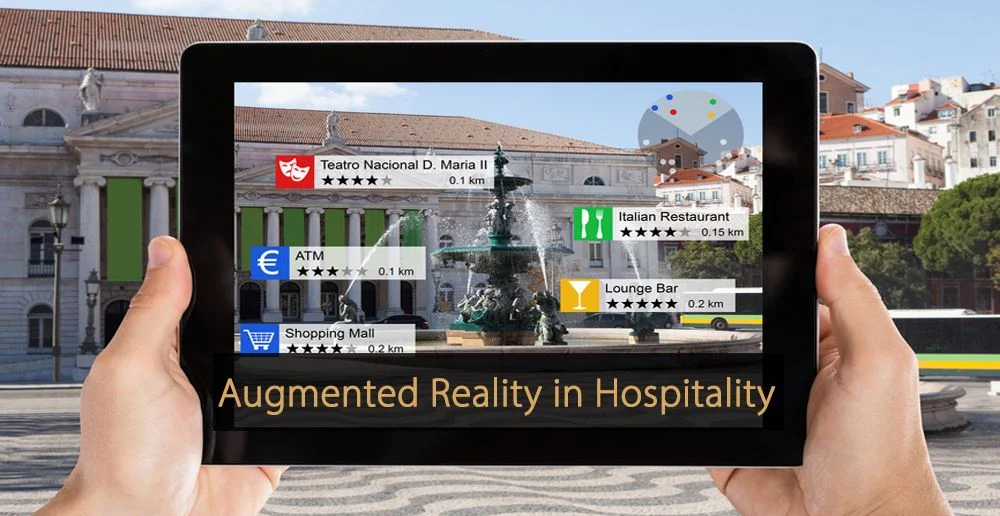
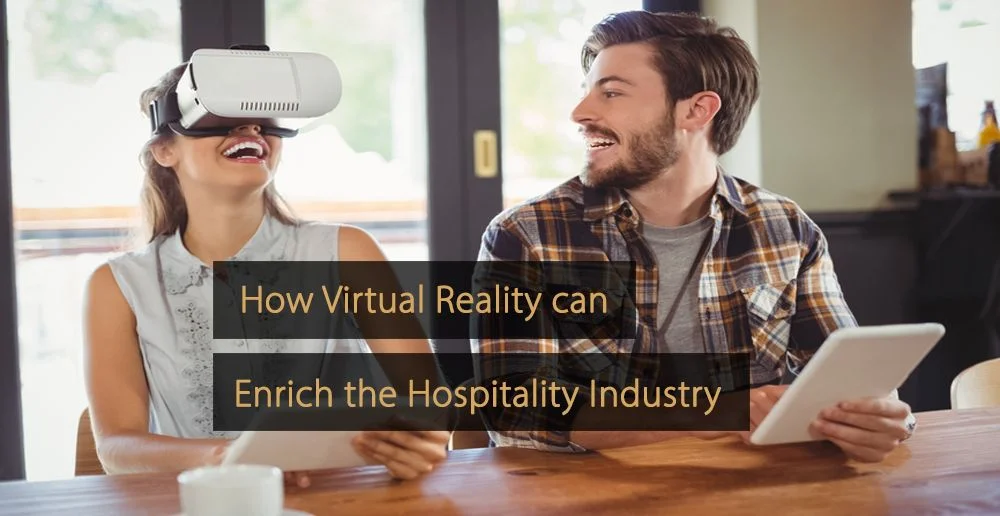

Metaverse could be the next big revolution! Also in hospitality :)
Very informative article about the metaverse within hospitality, including examples. Thank you.